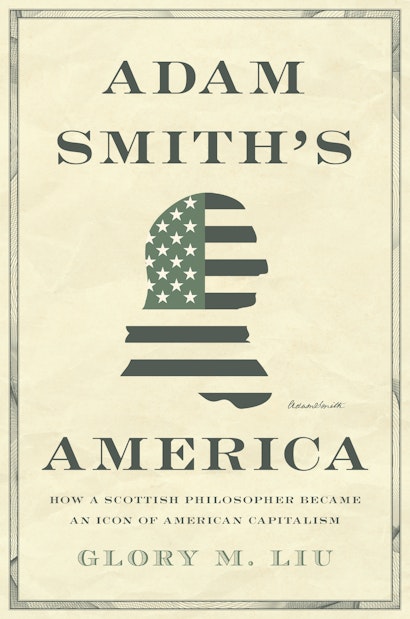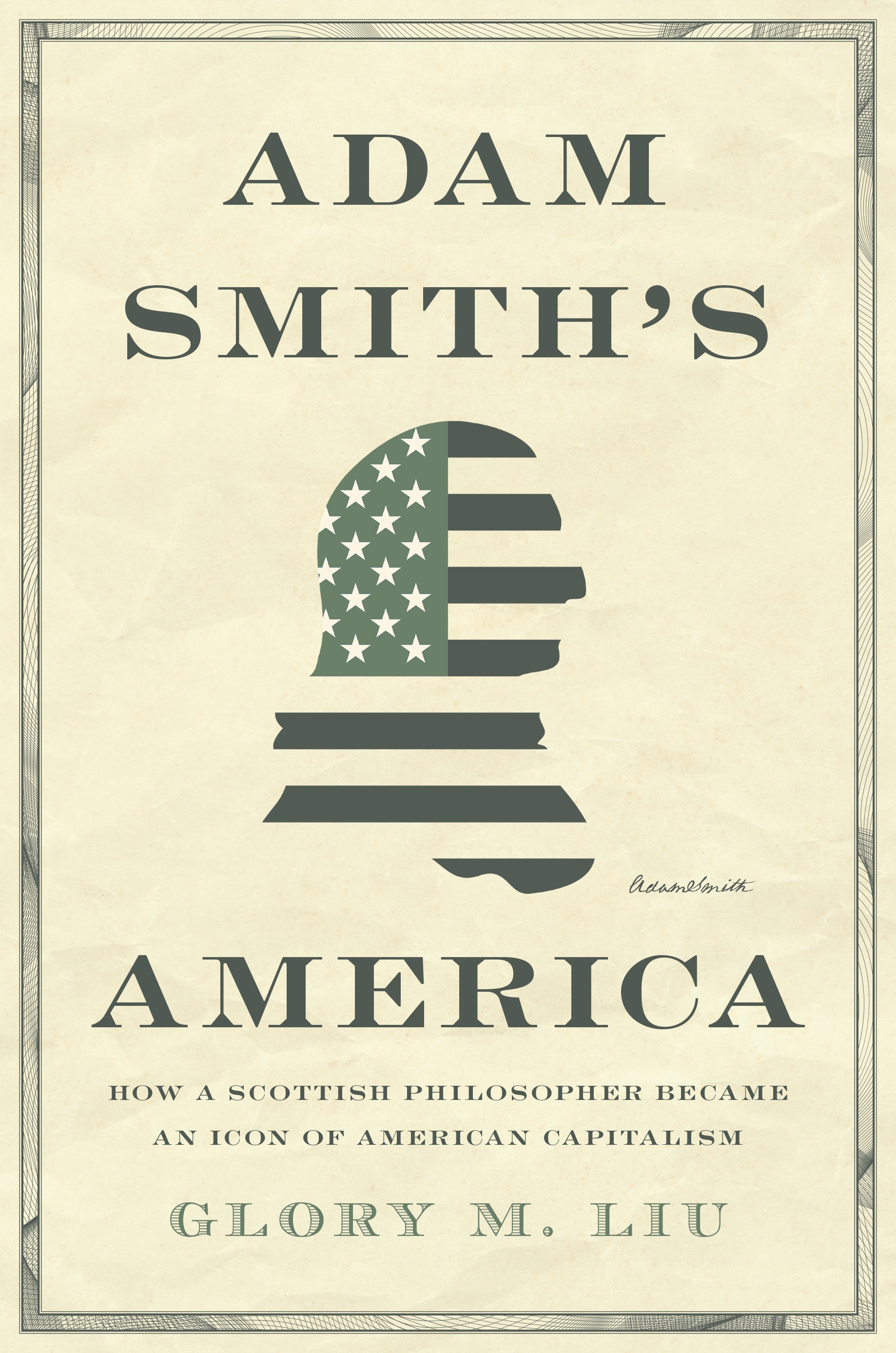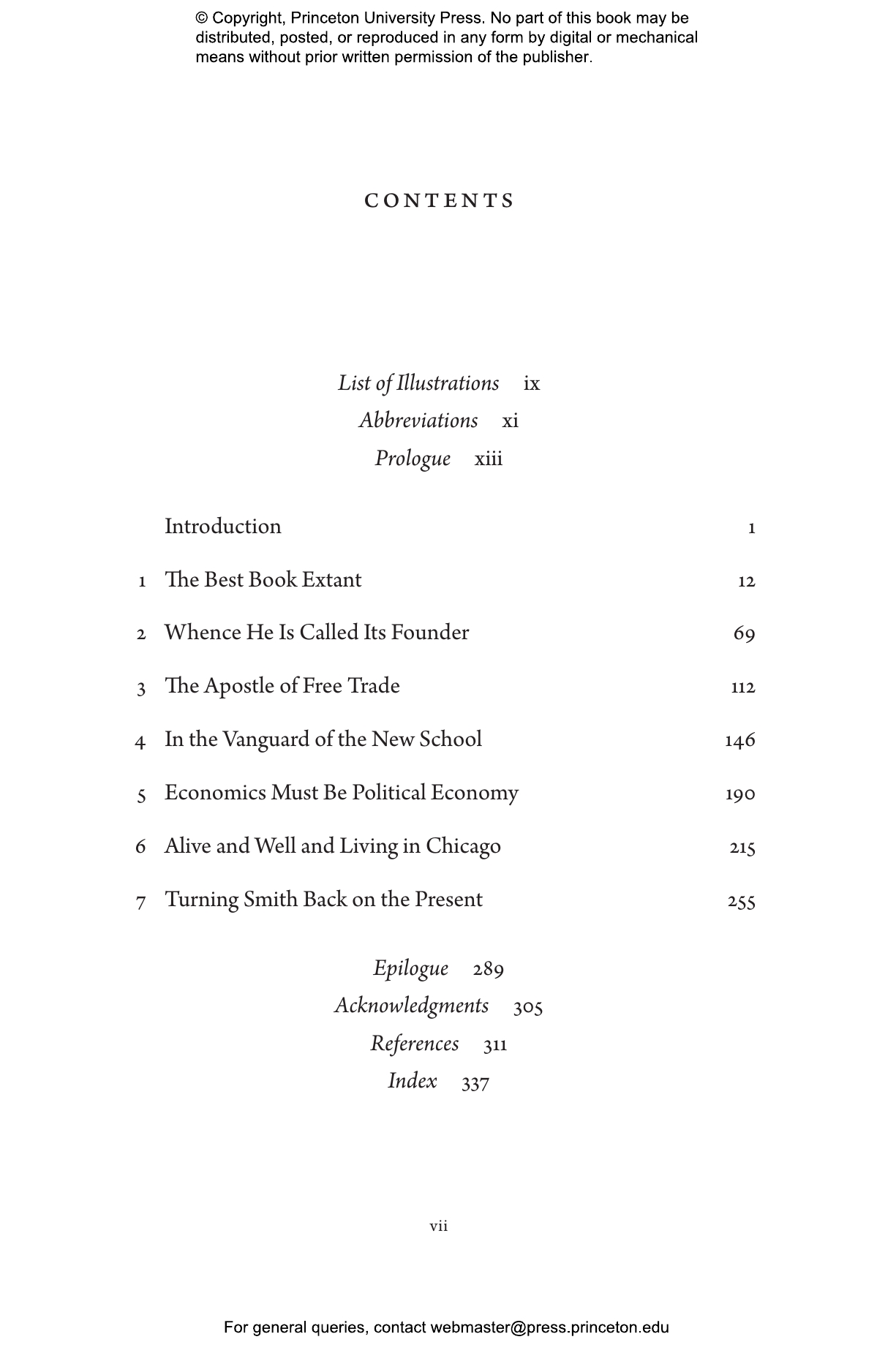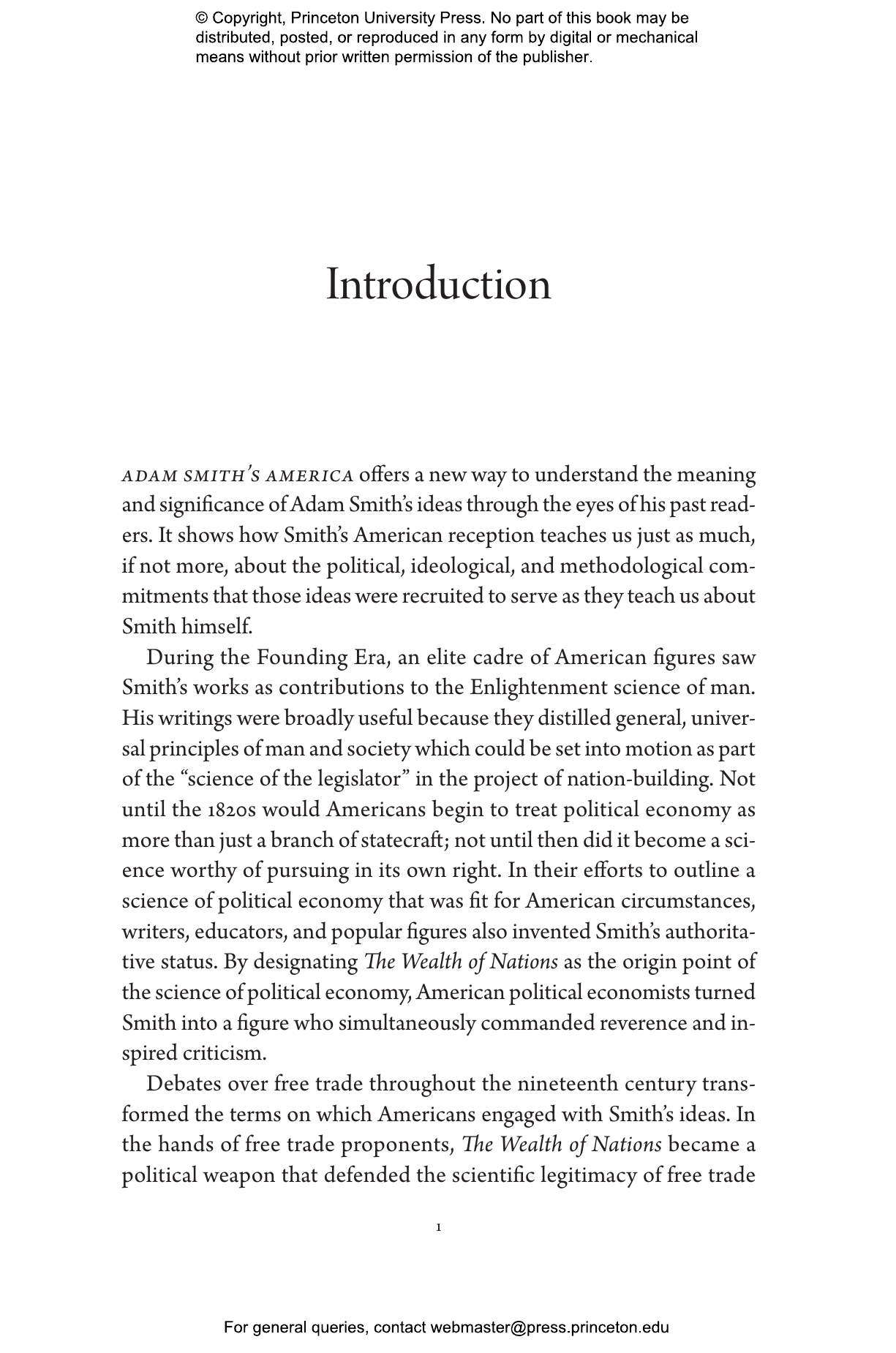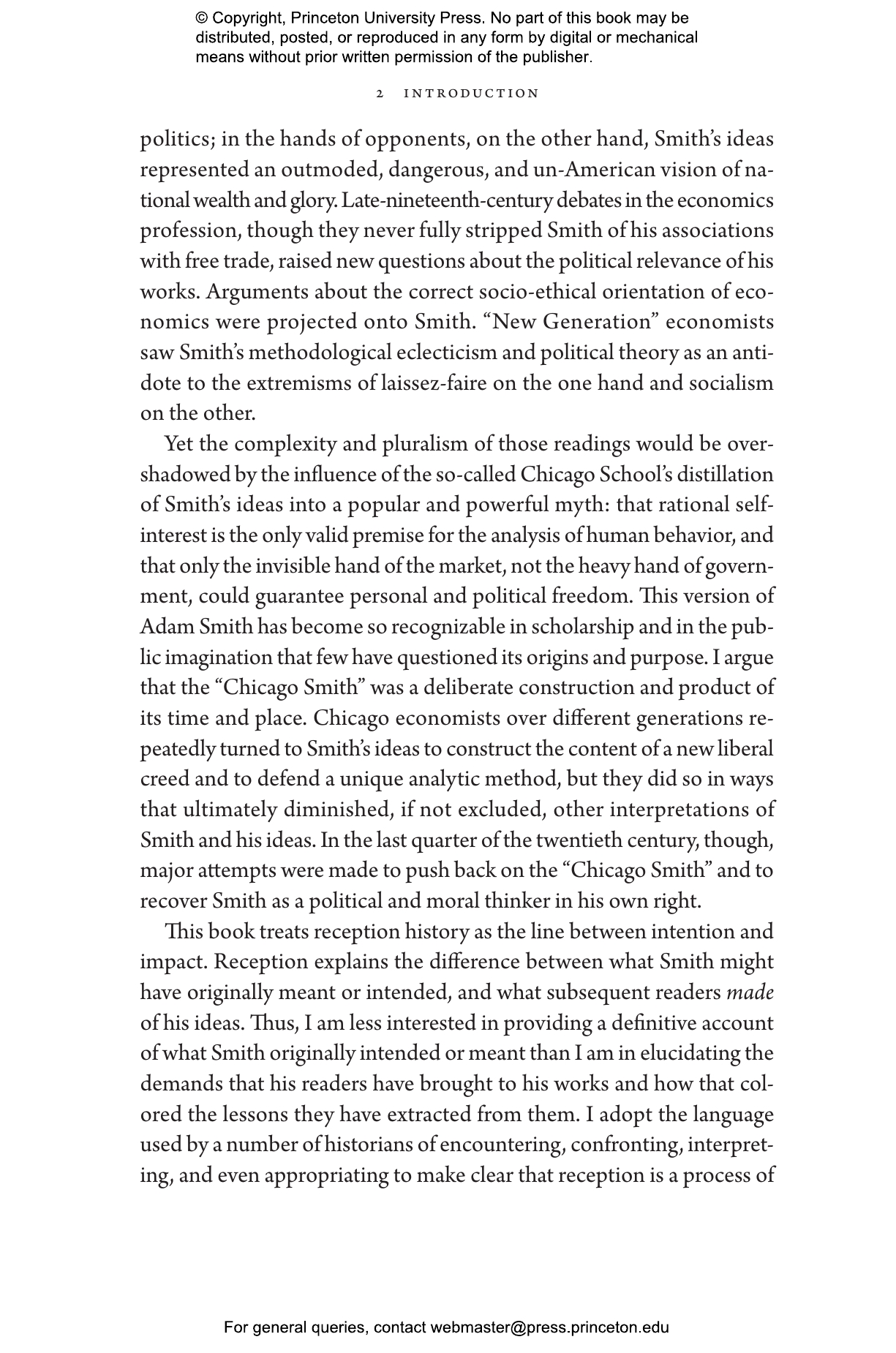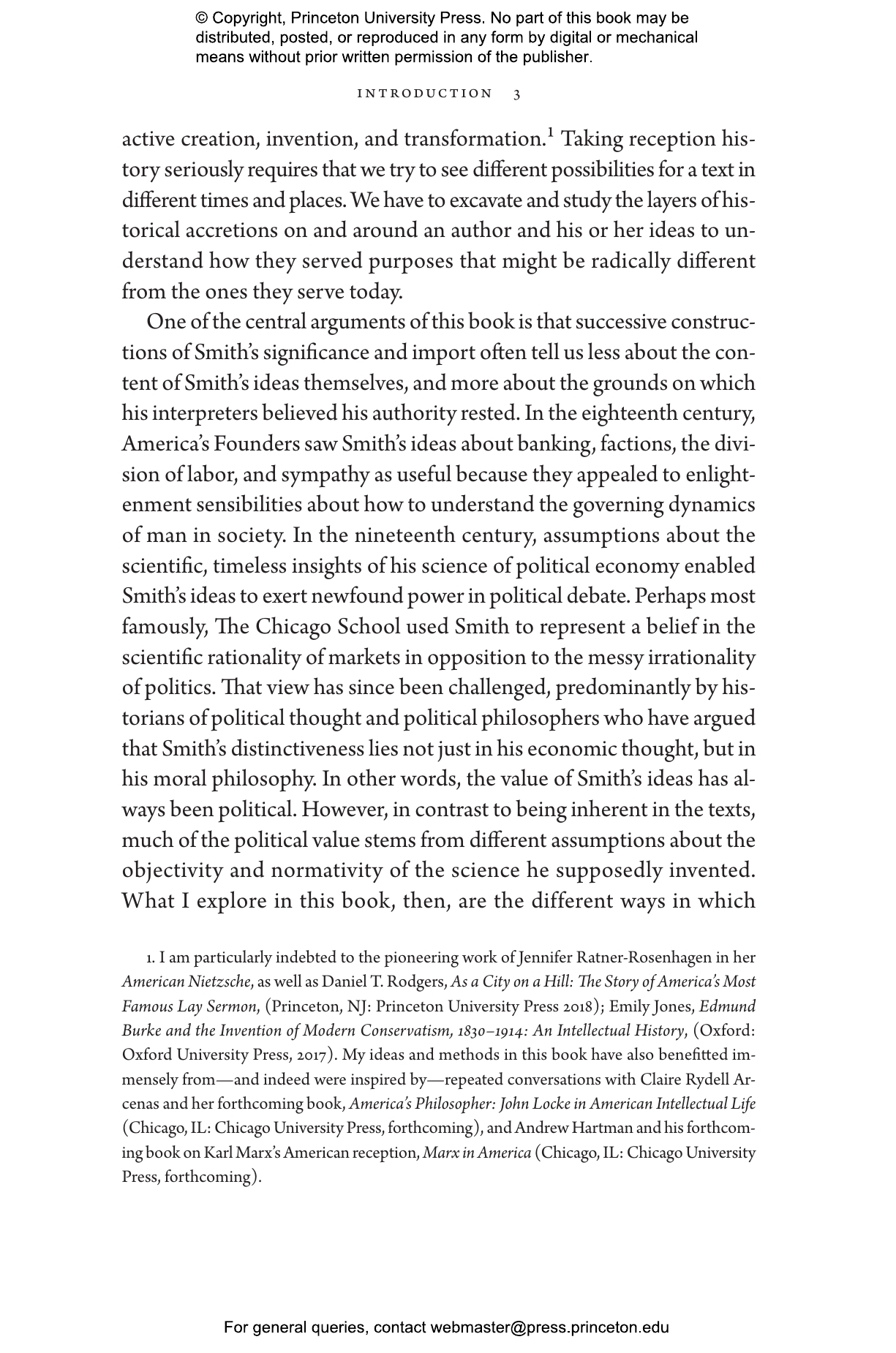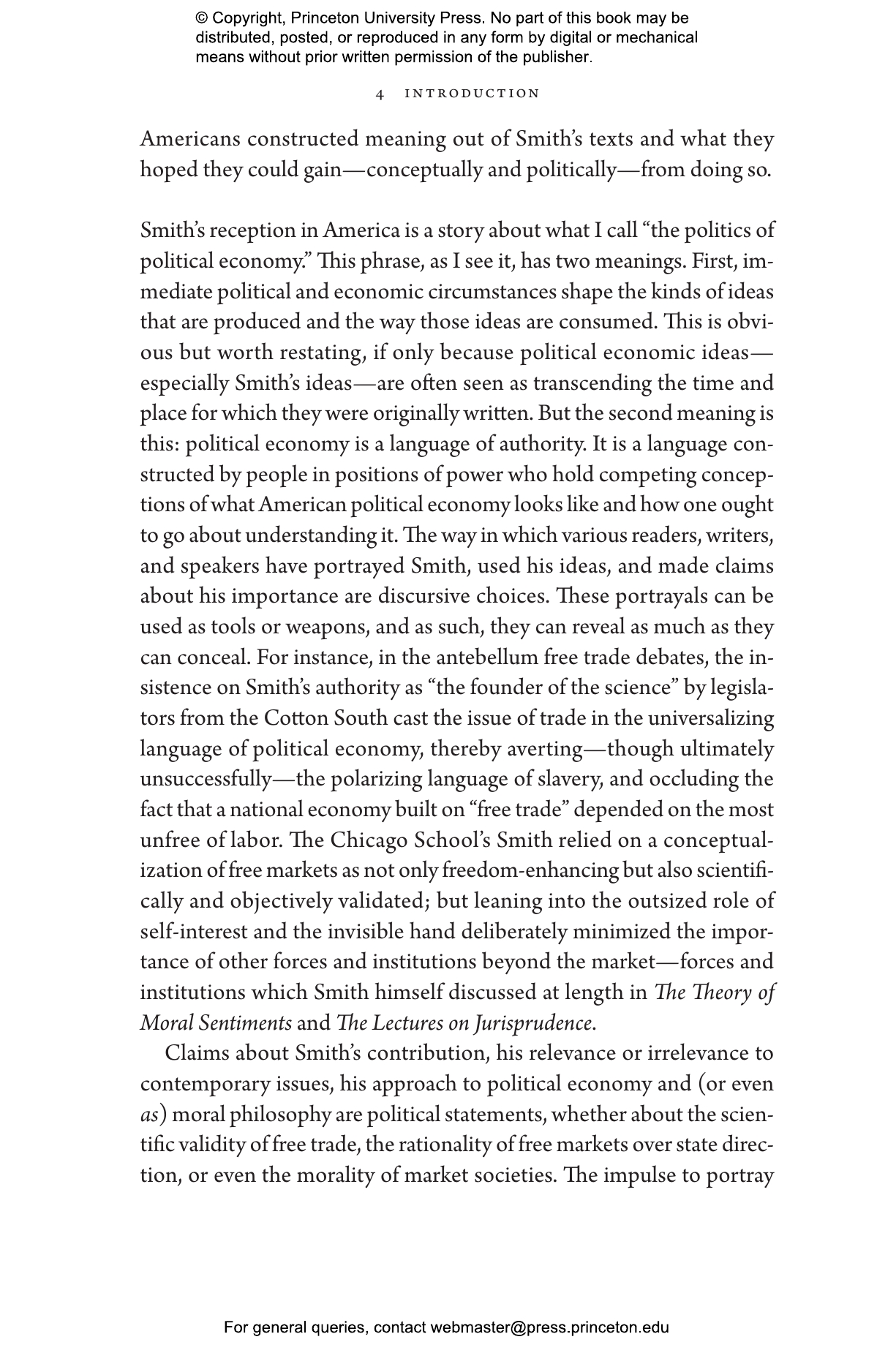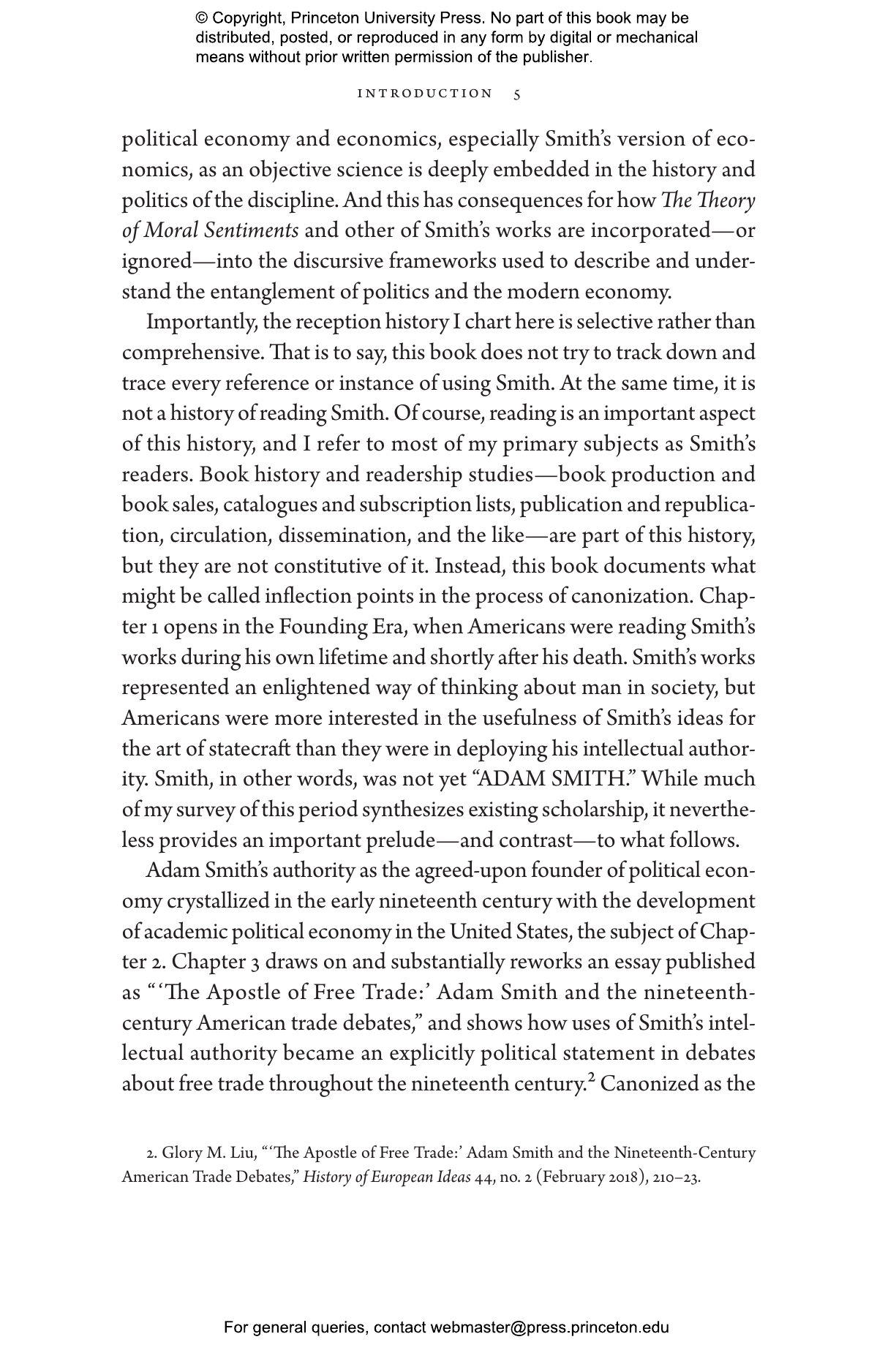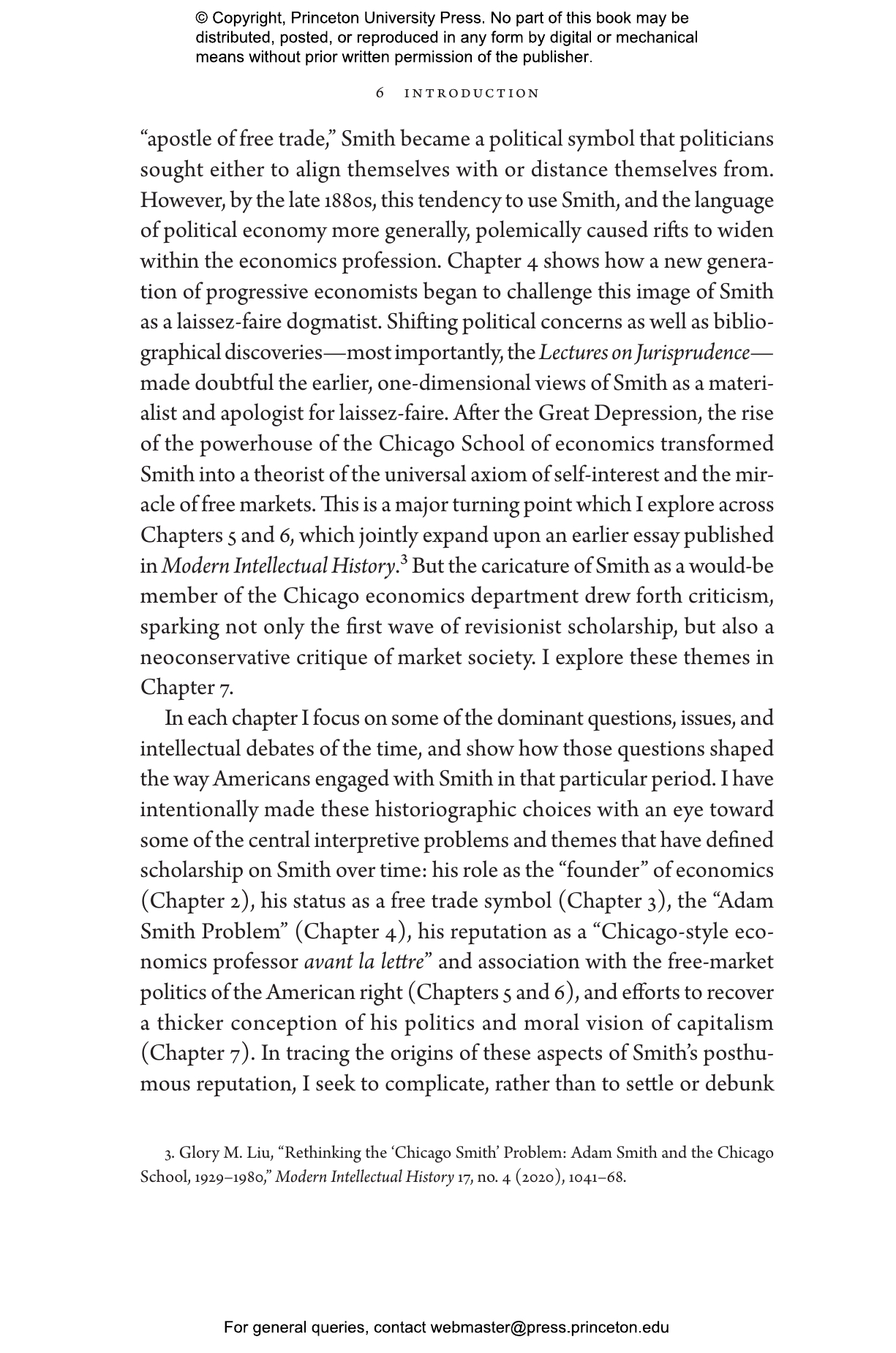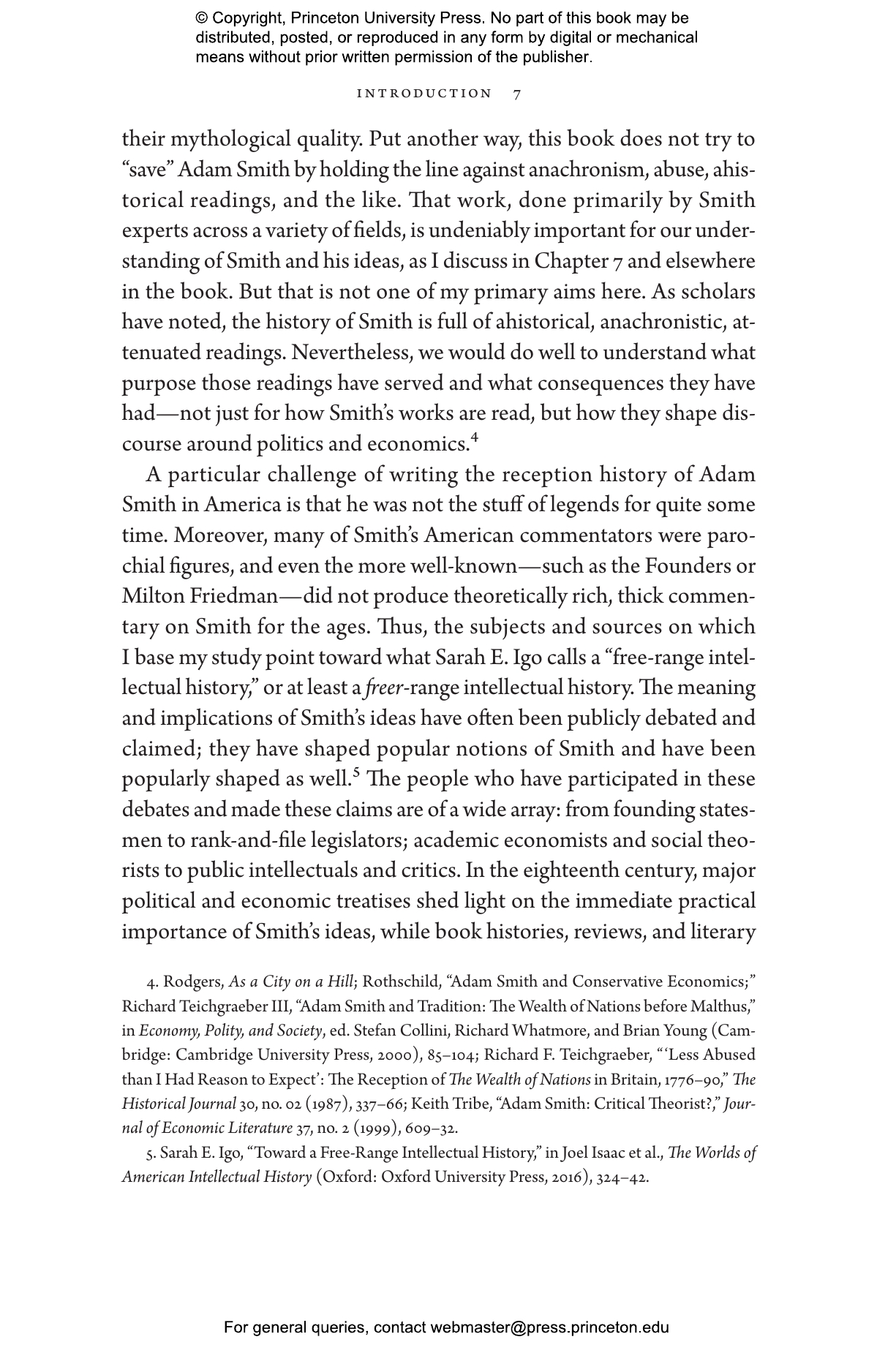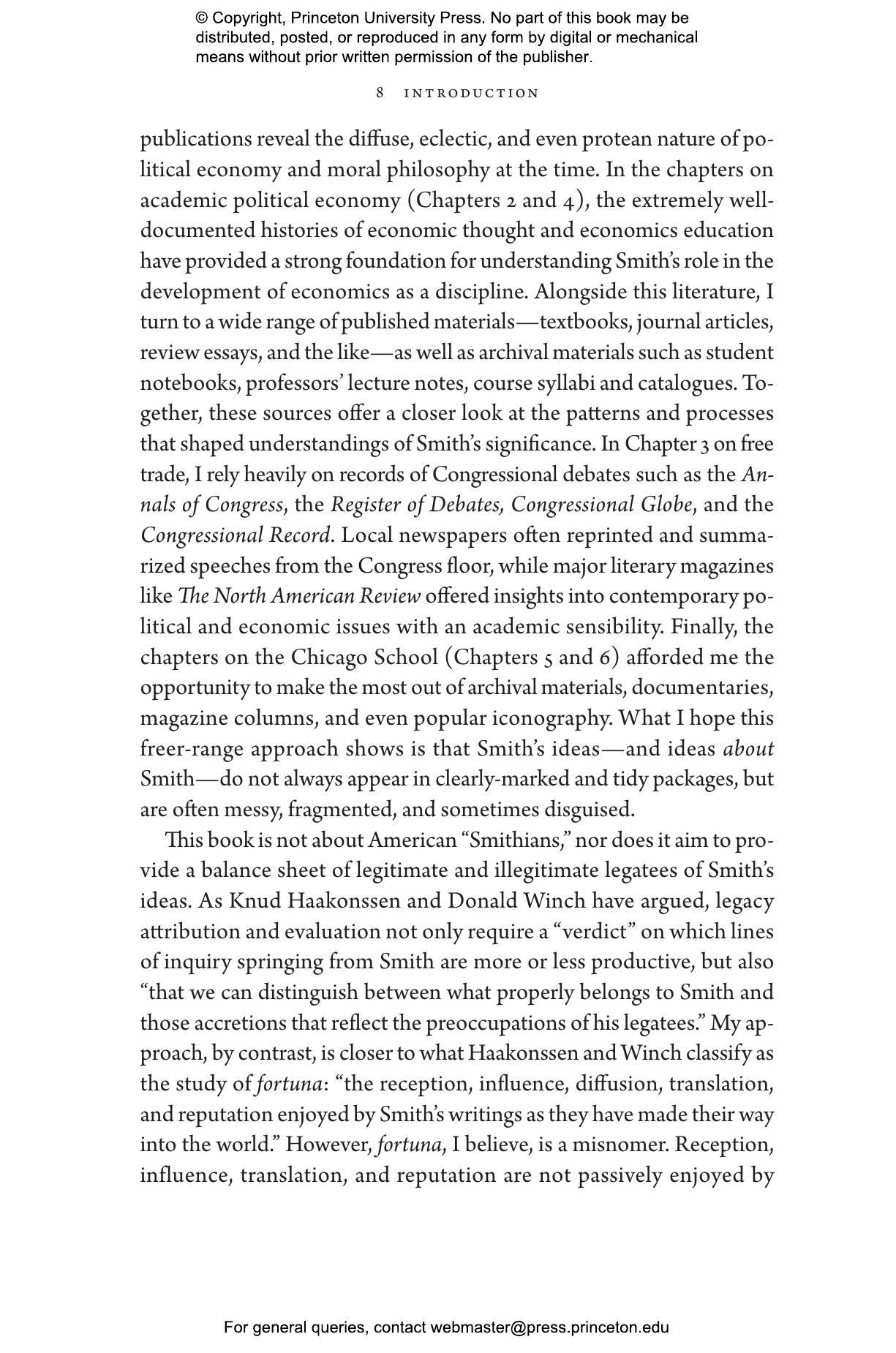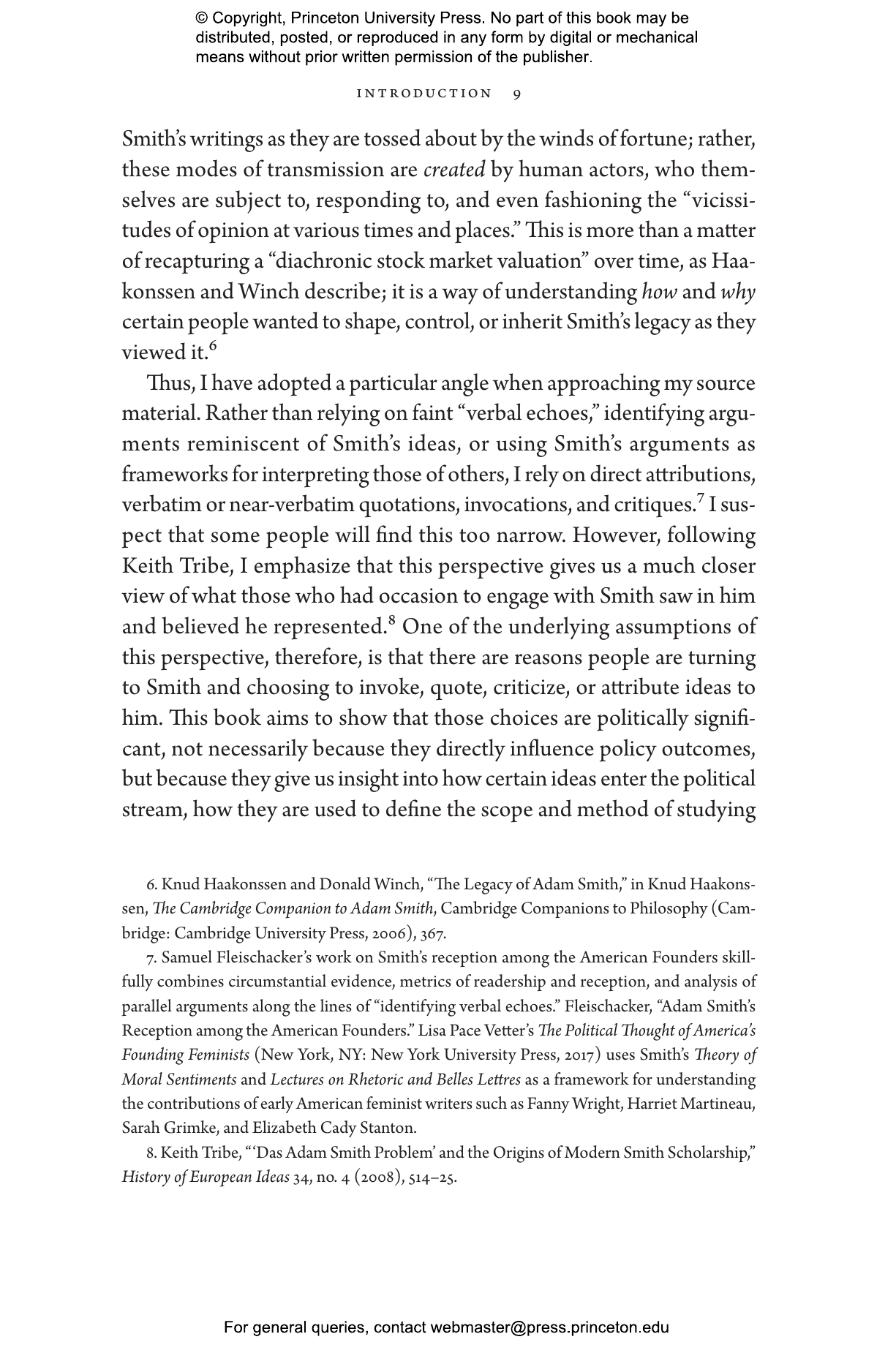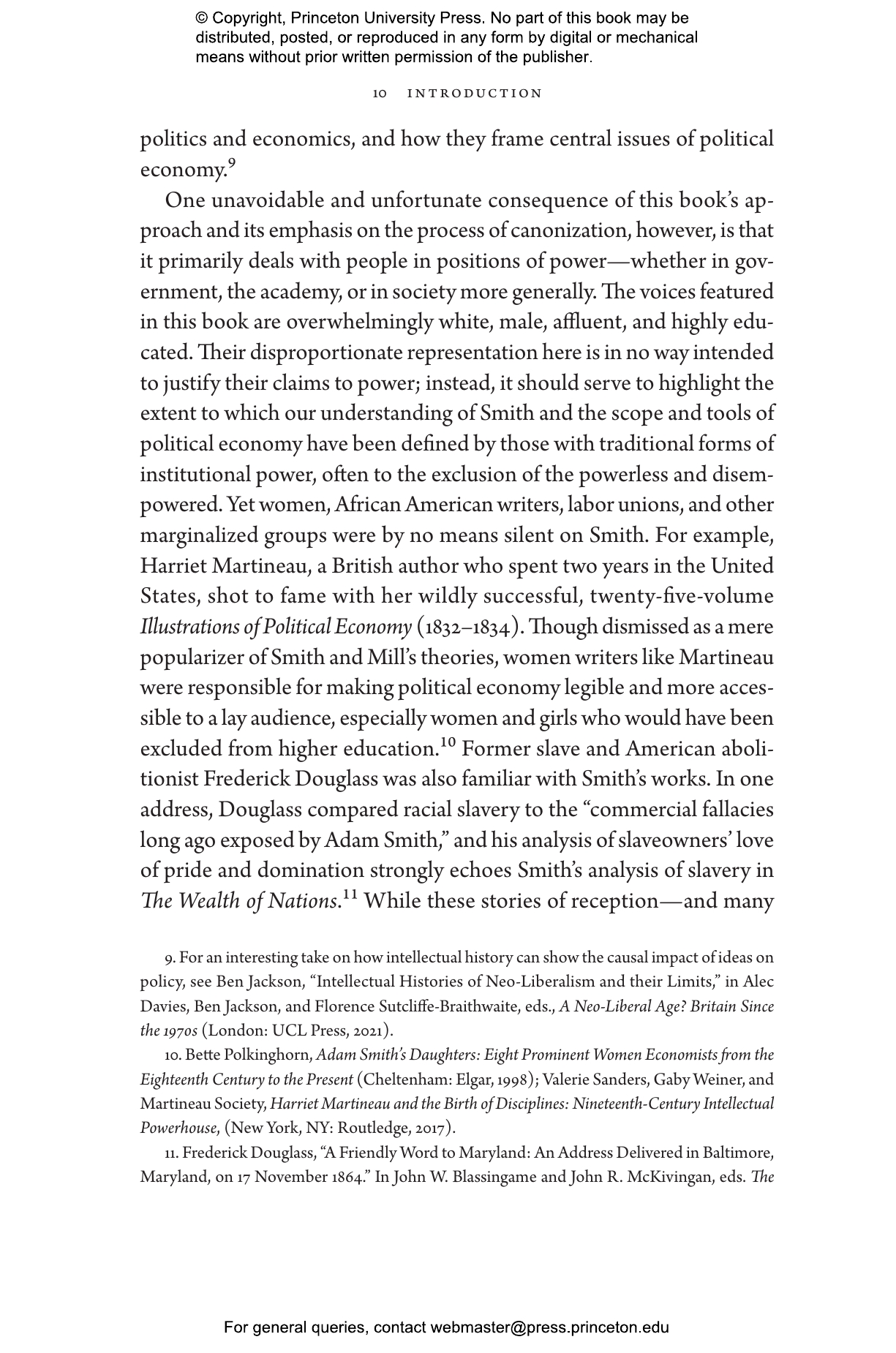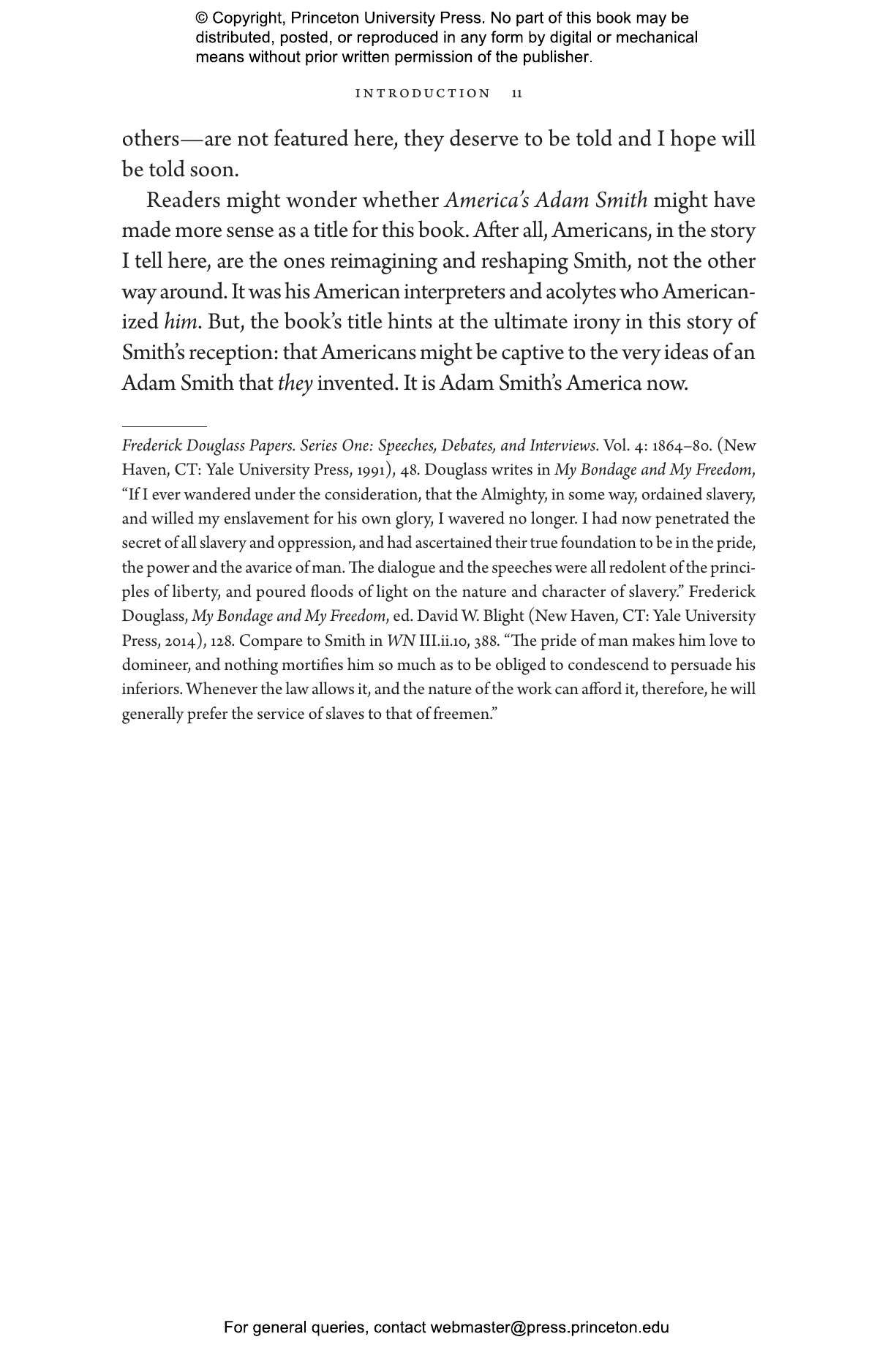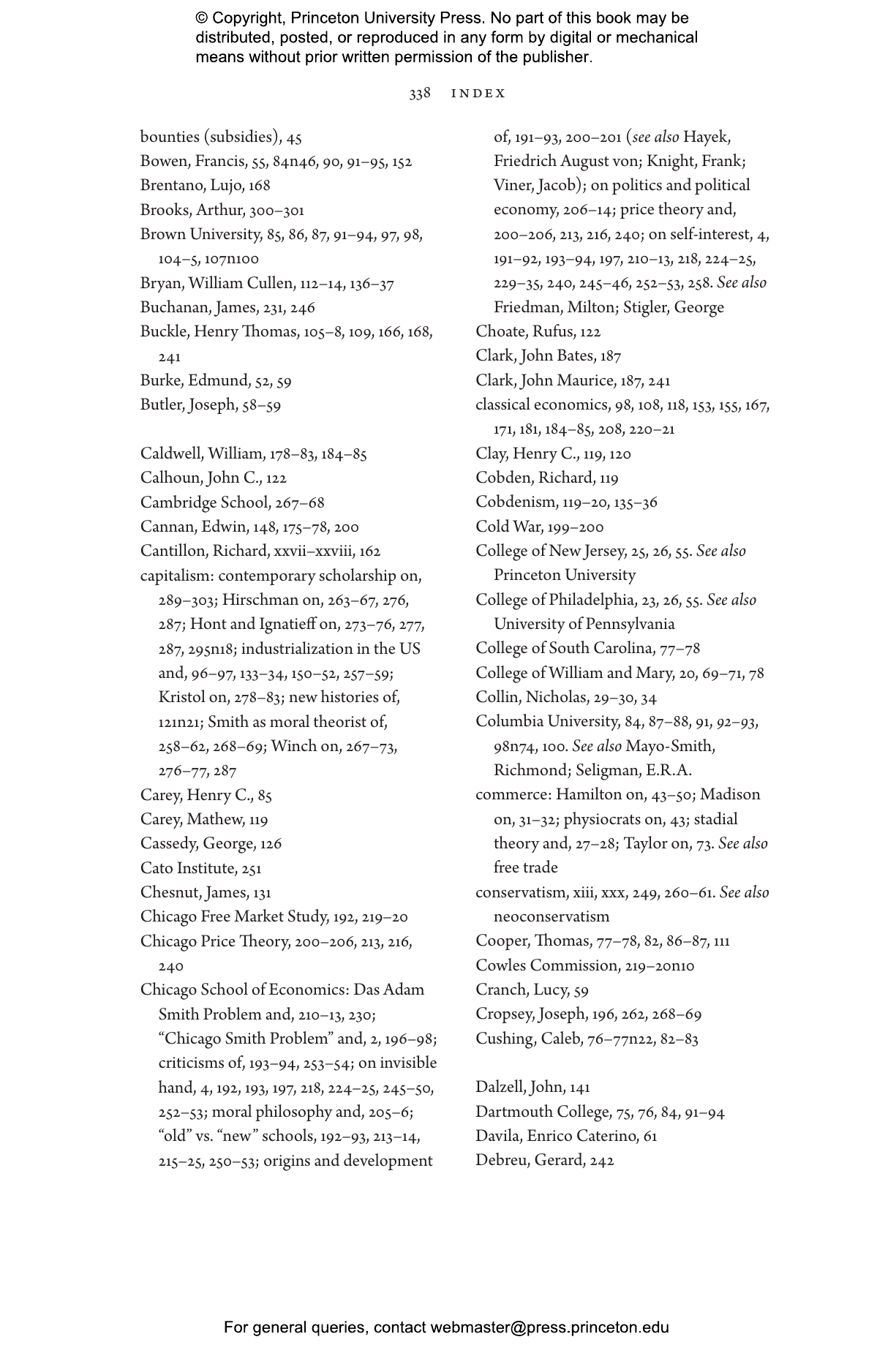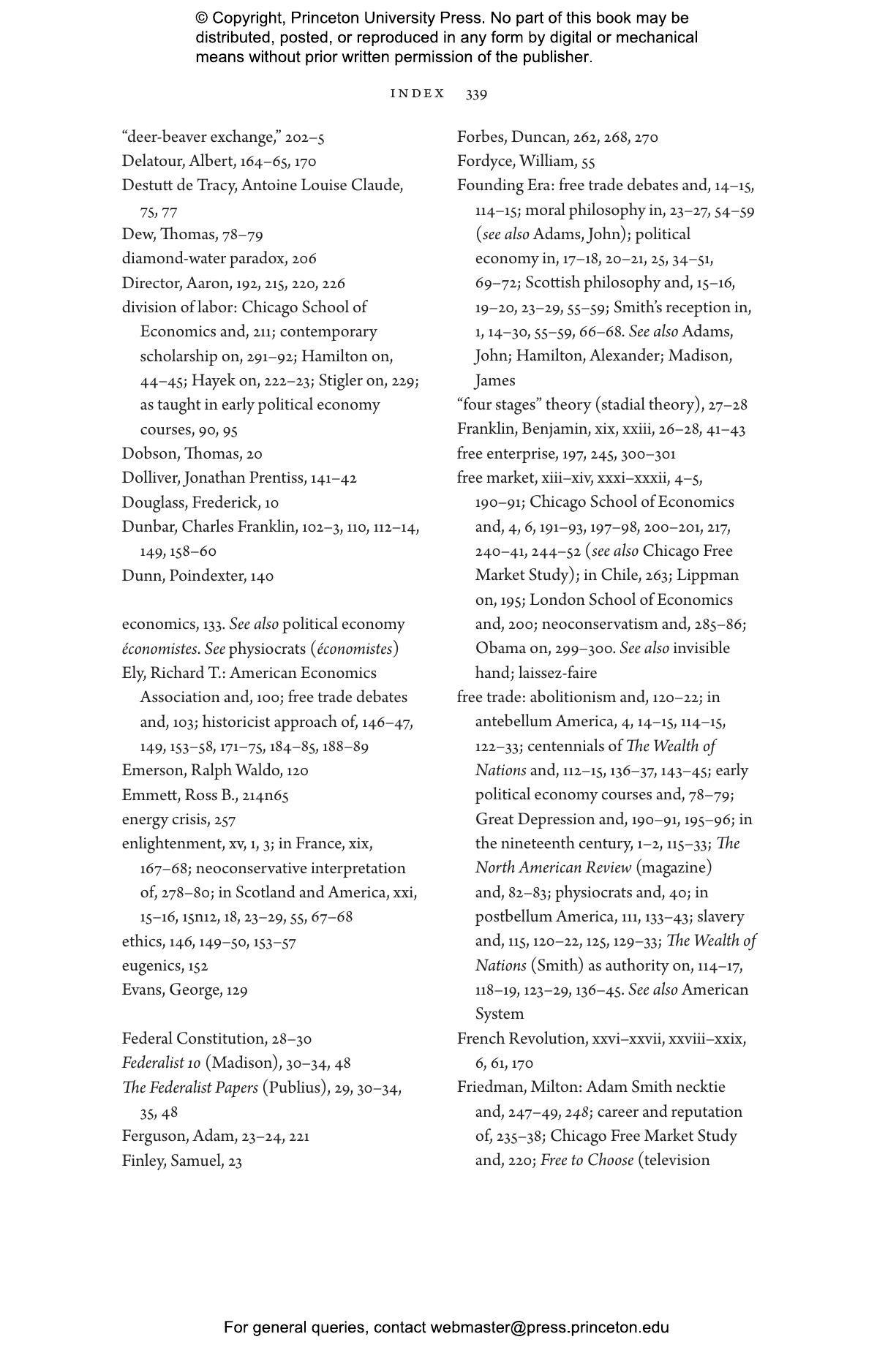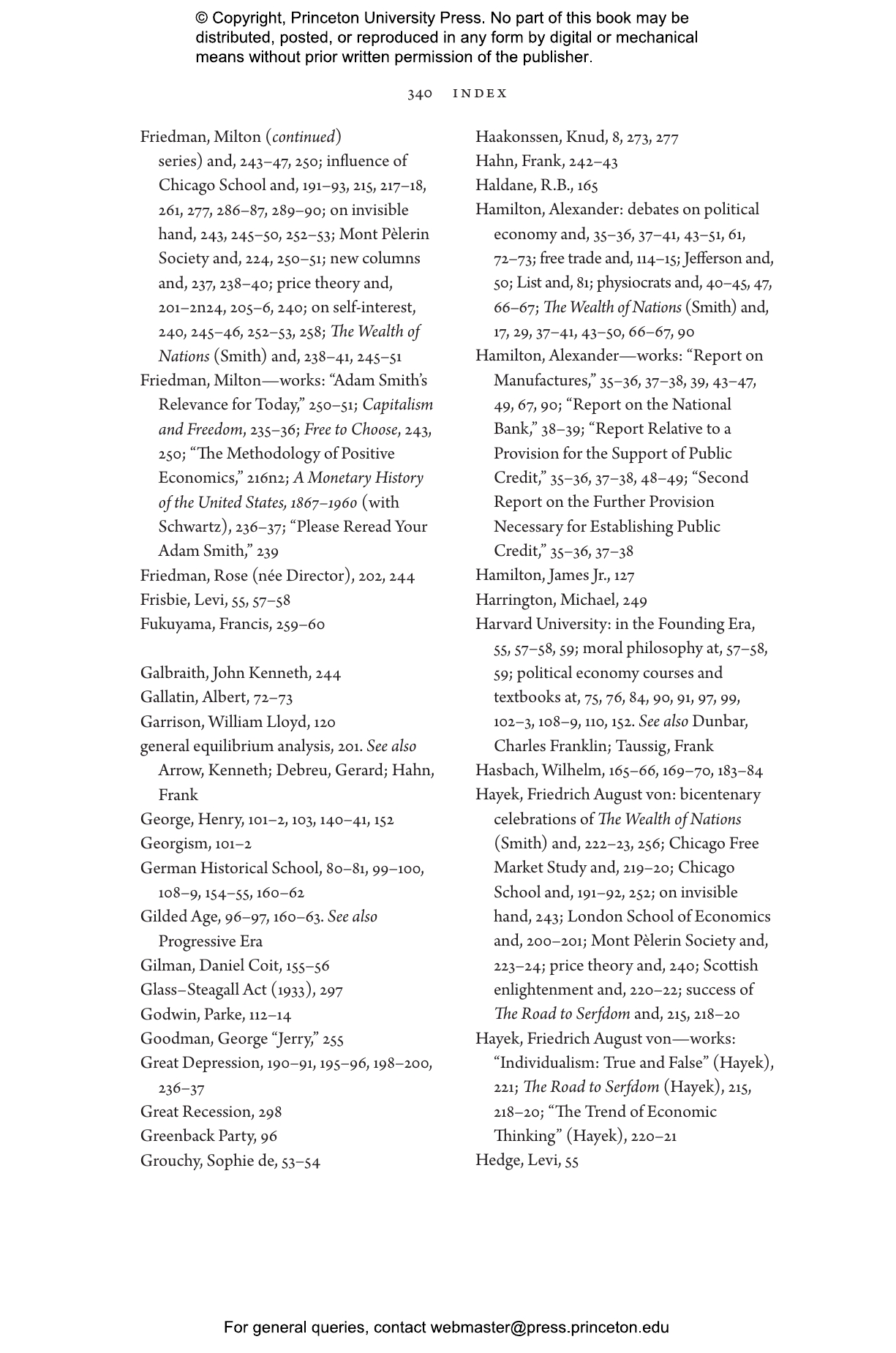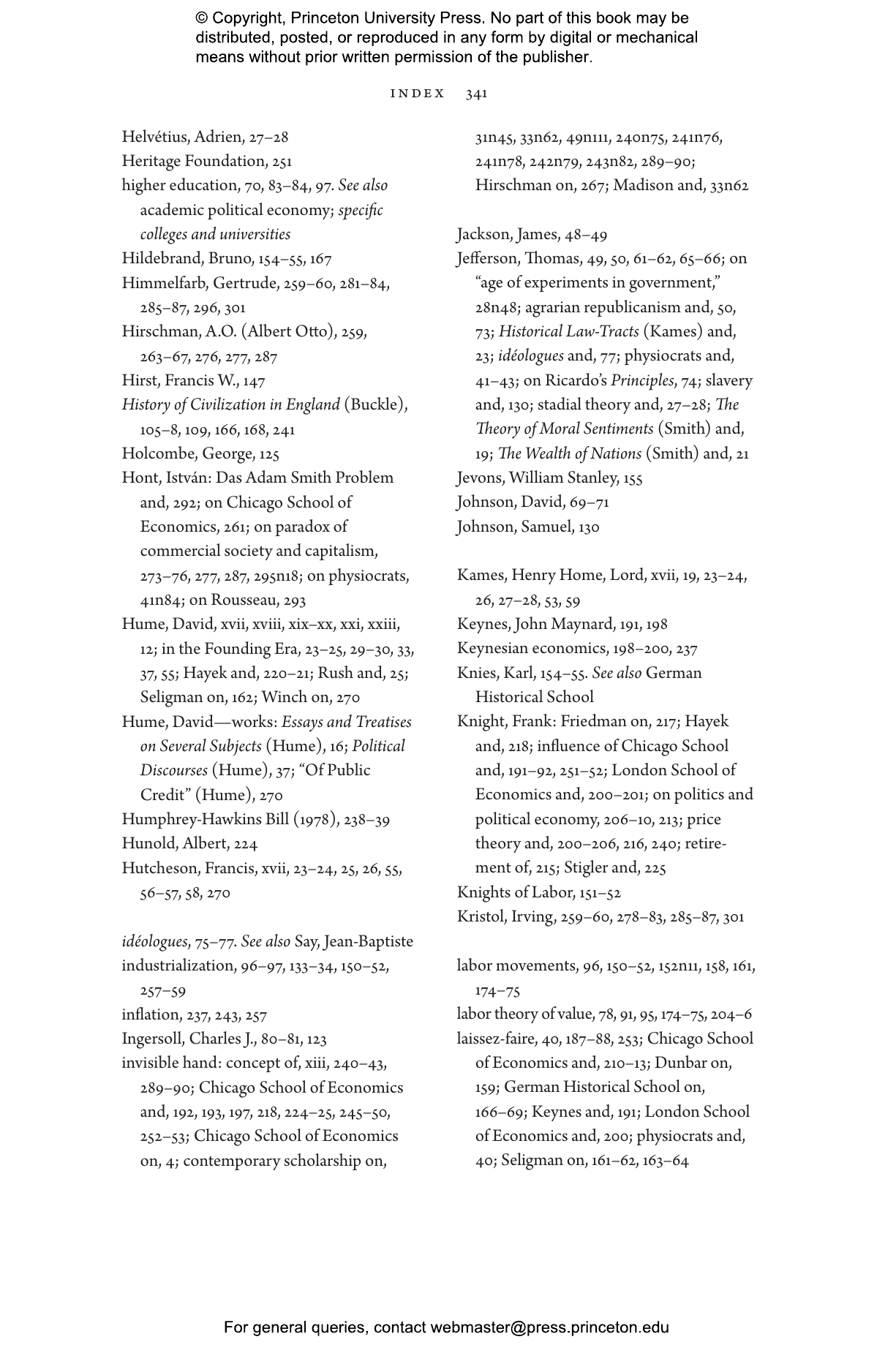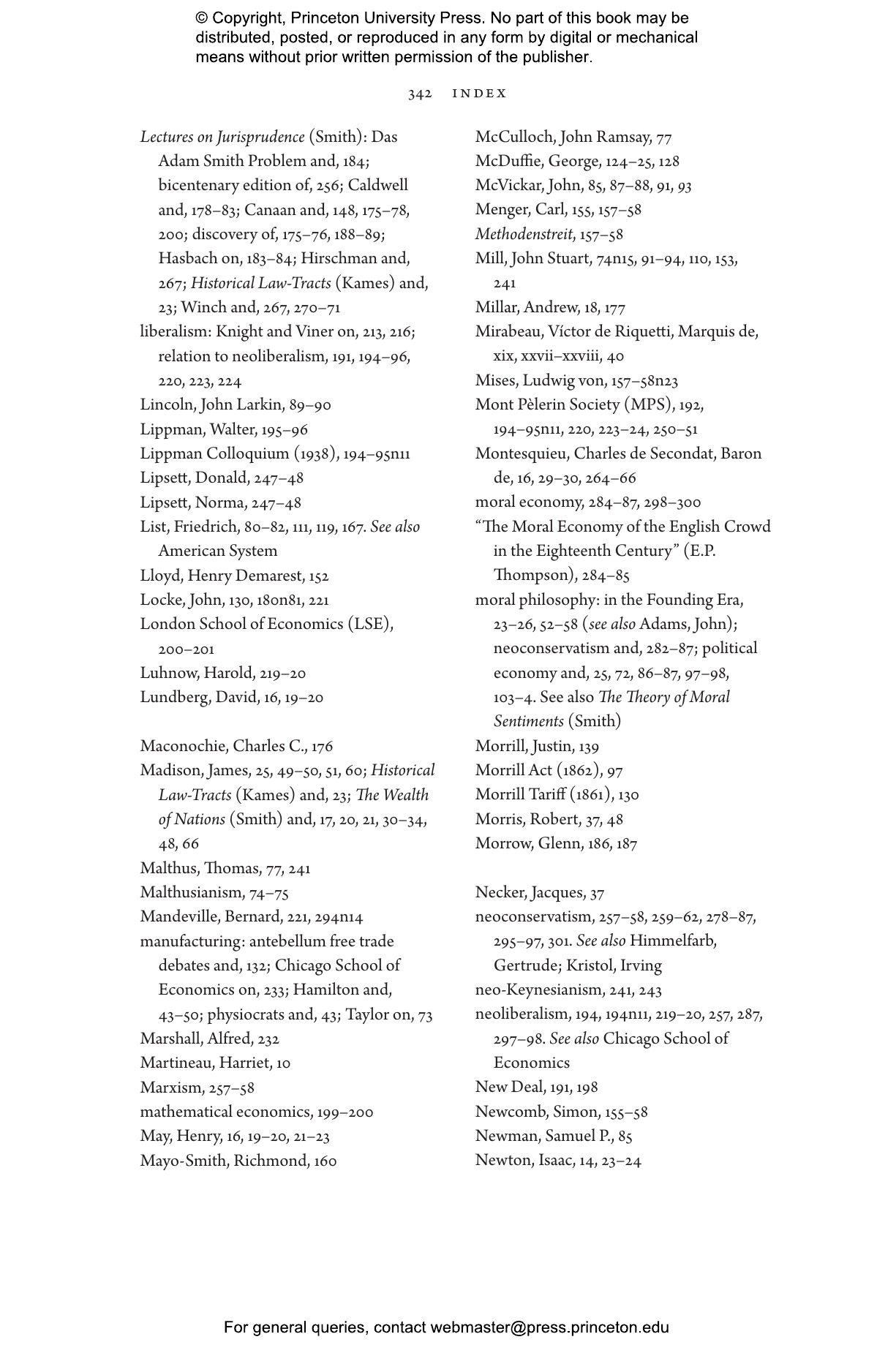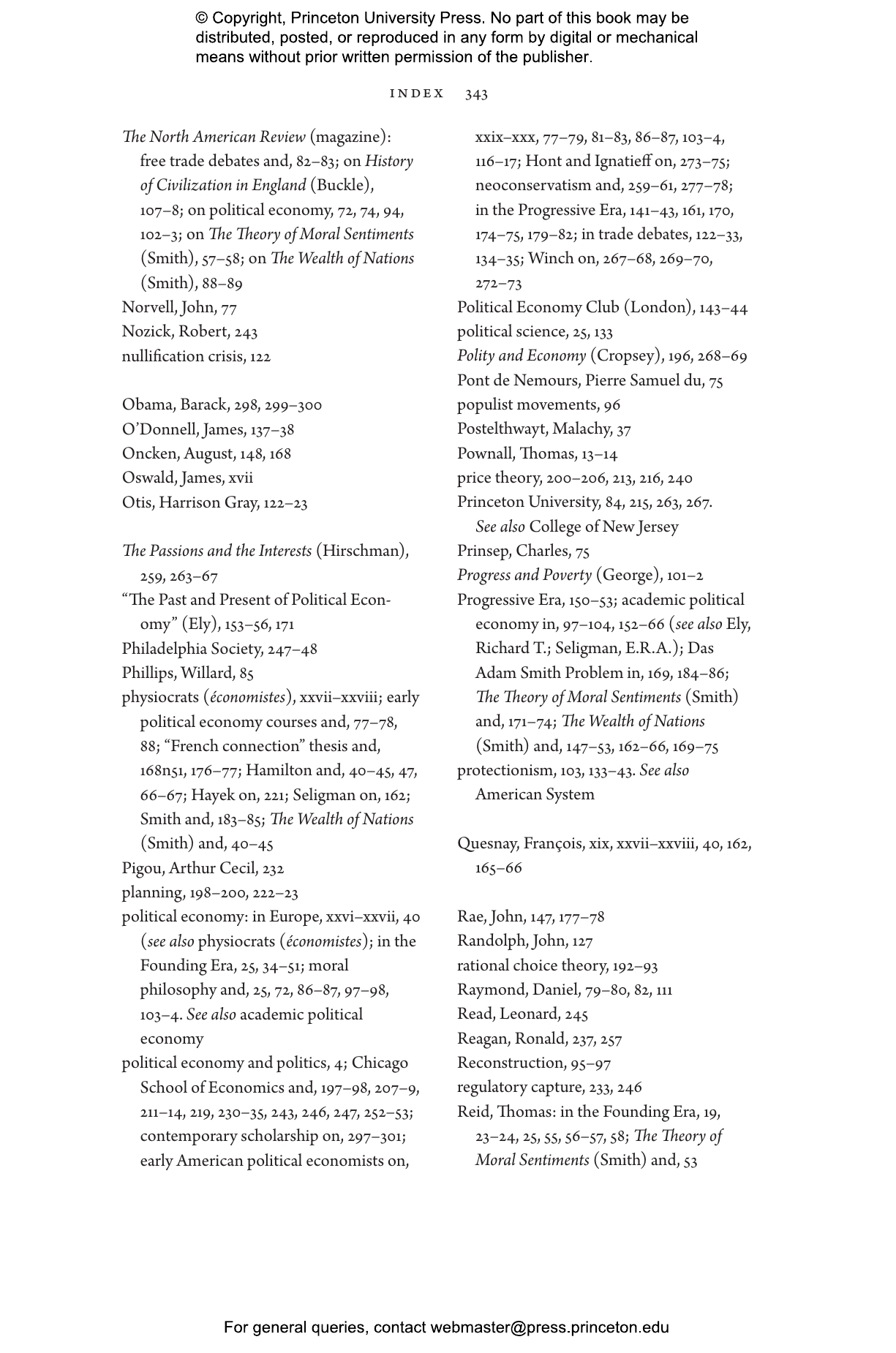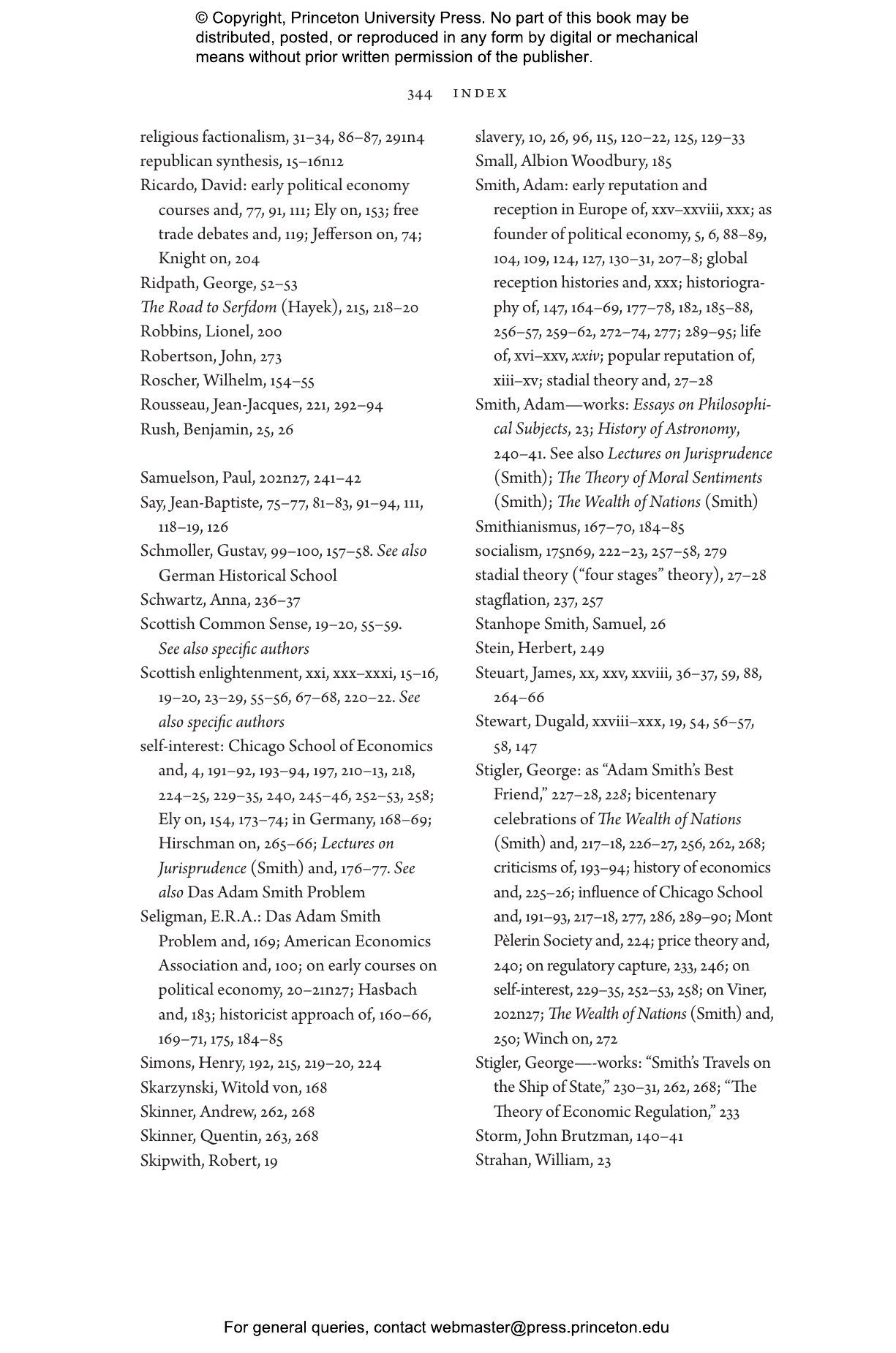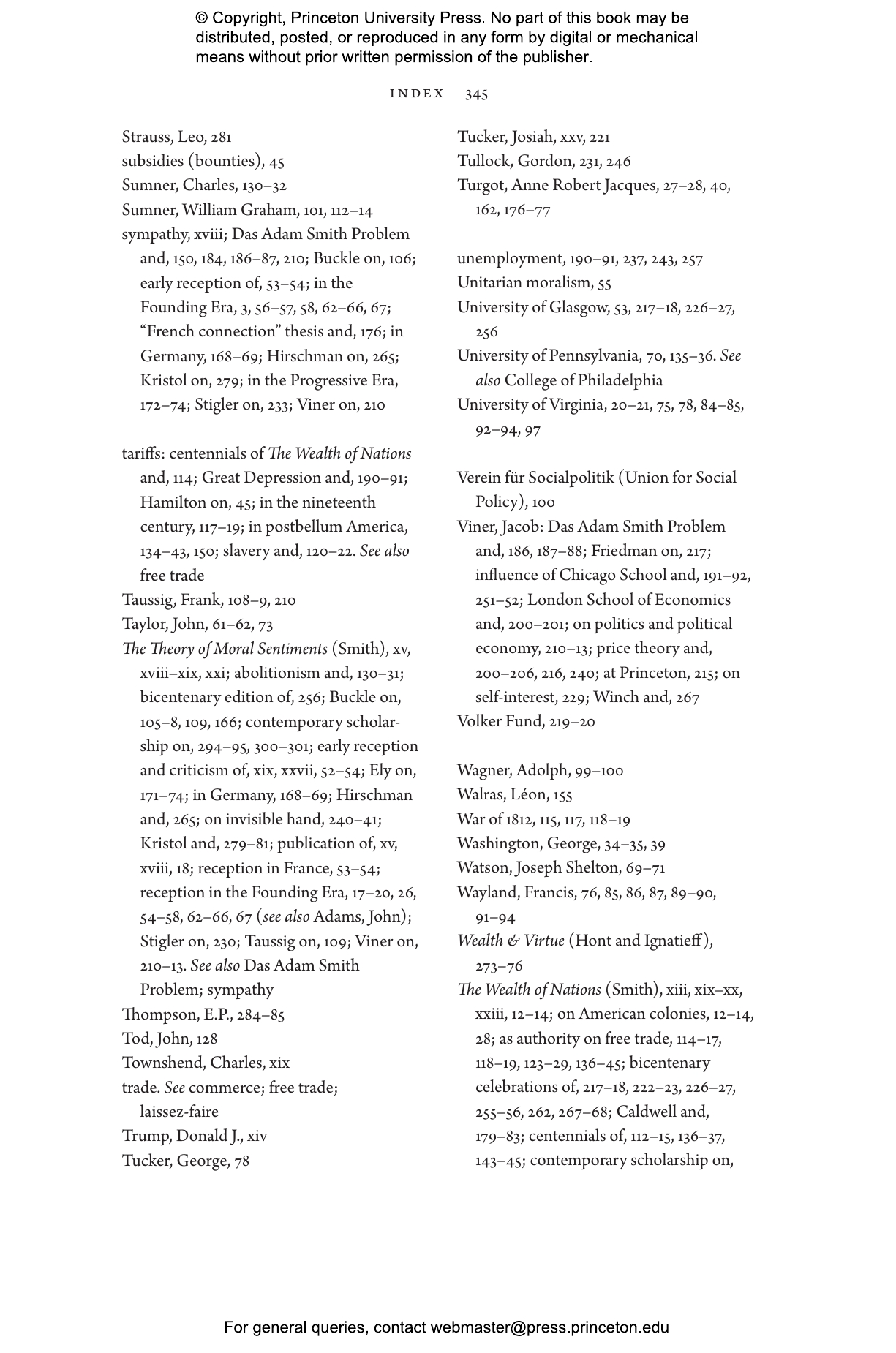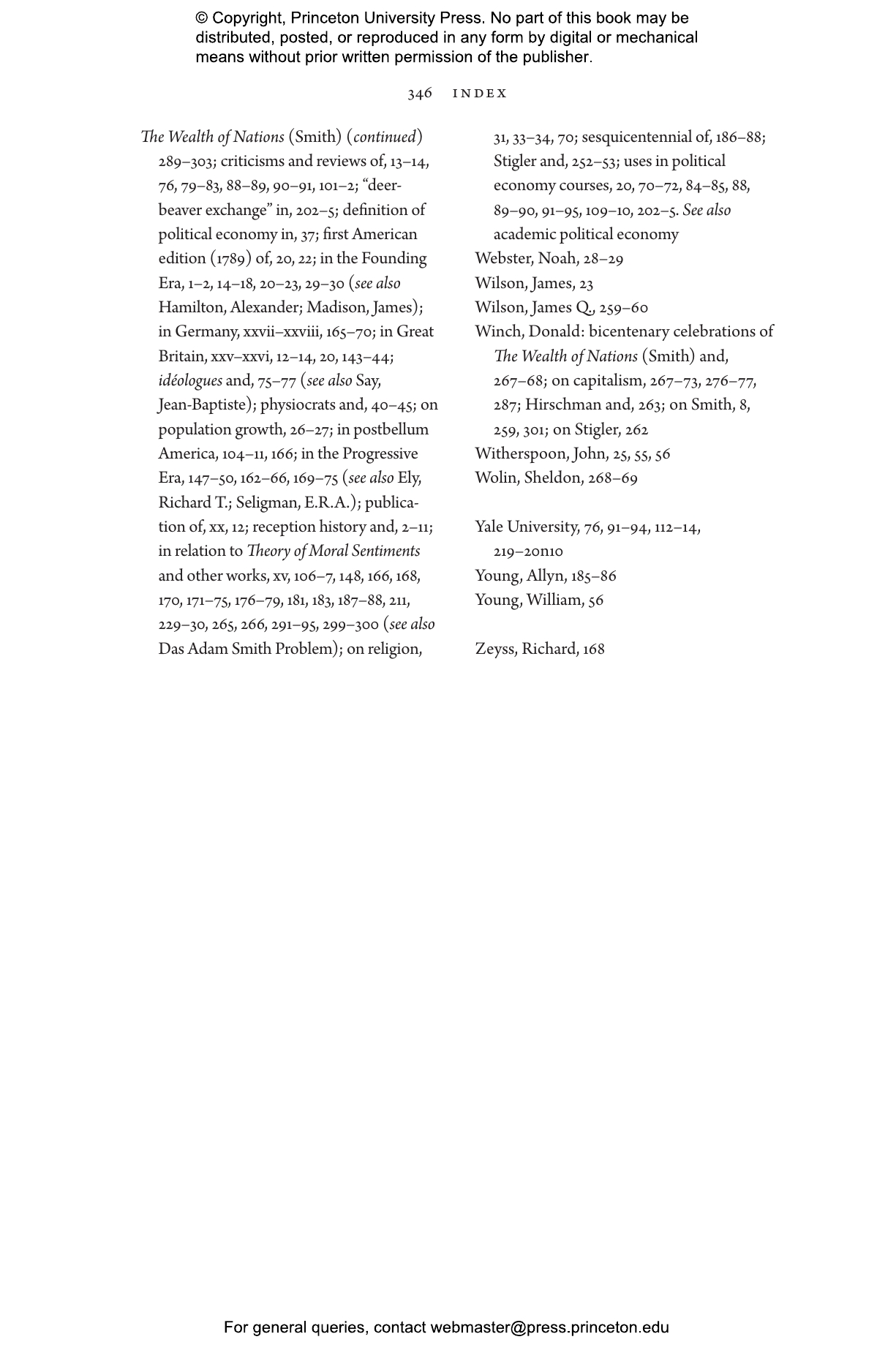Originally published in 1776, Adam Smith’s The Wealth of Nations was lauded by America’s founders as a landmark work of Enlightenment thinking about national wealth, statecraft, and moral virtue. Today, Smith is one of the most influential icons of economic thought in America. Glory Liu traces how generations of Americans have read, reinterpreted, and weaponized Smith’s ideas, revealing how his popular image as a champion of American-style capitalism and free markets is a historical invention.
Drawing on a trove of illuminating archival materials, Liu tells the story of how an unassuming Scottish philosopher captured the American imagination and played a leading role in shaping American economic and political ideas. She shows how Smith became known as the father of political economy in the nineteenth century and was firmly associated with free trade, and how, in the aftermath of the Great Depression, the Chicago School of Economics transformed him into the preeminent theorist of self-interest and the miracle of free markets. Liu explores how a new generation of political theorists and public intellectuals has sought to recover Smith’s original intentions and restore his reputation as a moral philosopher.
Charting the enduring fascination that this humble philosopher from Scotland has held for American readers over more than two centuries, Adam Smith’s America shows how Smith continues to be a vehicle for articulating perennial moral and political anxieties about modern capitalism.
Awards and Recognition
- A Wall Street Journal Five Best Biographies of Economists
- Winner of the PROSE Award in Economics, Association of American Publishers
- A NPR Books We Love selection
- Winner of the Best Monograph Award, European Society for the History of Economic Thought
"Intriguing. . . . Capacious. . . . Rich."—Kim Phillips-Fein, New Republic
"How did Adam Smith become as American as apple pie? Wisely skipping over the ‘mesmerizingly mundane’ life of the man, about whom we know little, Glory Liu offers a biography of Adam Smith the idea. Traversing three centuries of American thought in fluid prose, Ms. Liu finds traces of Smith in his inspiration of the founding generation, as grist for 19th-century debates over free trade, and as a celebrated apostle of the free market during the Cold War. Synthesizing a wave of recent scholarship on Smith, Ms. Liu elevates his Theory of Moral Sentiments over his canonical Wealth of Nations."—Jennifer Burns, Wall Street Journal (Five Best Biographies of Economists)
"A fascinating tour of American economic theory and debate from the late 18th century to the present. . . . Liu’s book is more than an examination of the twists and turns in American economic debate, for it also raises profound questions about economics as a discipline and terrain of debate."—Colin Kidd, New Statesman
"This is an excellent book."—Branko Milanovic, Global Inequality and More 3.0
"[Adam Smith’s America] illuminates how the ways that readers approach a text become part of that text’s story. . . . A model for doing reception history well."—Rebecca Brenner Graham, Slate
"Exemplary. . . . Liu presents Smith’s reception history as a unique window into what she calls the nation’s ‘politics of political economy.’ She is right. . . . Liu demonstrates just how malleable ideologically the interpretation of Smith has been over time."—Jonathan Levy, Boston Review
"[A] provocative analysis of Scottish moral philosopher Adam Smith’s influence on U.S. politics and business. . . . This is a rewarding reconsideration of an influential thinker."—Publishers Weekly
"The iconic economist has become all things to all people over time, from Friedman-esque libertarian to anti-capitalist crusader. . . . Even if Chicago, the Heritage Foundation, and other right-leaning entities have tried to seize him for their cause, Liu examines the possibility that he may be ‘closer to the values of the contemporary left’—thus are the many ambiguities in his work. A bracing study not just of Smith’s ideas, but also of how scholars and activists have used (and misused) them."—Kirkus Reviews
"Masterful."—David Bahnsen, Religion & Liberty Online
"Fascinating."—Greg Olear, PREVAIL
"Lucid and compelling. . . . Adam Smith’s America is an impressively researched and deftly executed book."—Robin Douglass, Global Intellectual History
"Maybe it’s a moonshot to imagine lanyard-festooned Seattleite techies as a revolutionary vanguard, but, whatever your political visions: There’s a Smith for that."—Adam Willems, The Stranger
"Outstanding work."—Matteo Santarelli, Journal of Interdisciplinary History of Ideas
"A detailed and well-researched account of the reception of Adam Smith in America."—Maria Pia Paganelli, History of Economic Thought and Policy
"Liu succeeds in illustrating how multifaceted interpretations of Smith have been and how important he remains as the prism through which we understand the relationship of the economy, the individual, and the state. Liu thus tells the story of how a Scottish moral philosopher became an icon of American capitalism with style and intellectual vigour."—Zack Rauwald, Tocqueville21
"Adam Smith’s America offers a rich and nuanced exploration of how one of the most influential thinkers in economic history has been understood and misunderstood in American political and intellectual discourse. Liu’s work serves as a valuable corrective to oversimplified narratives about Smith’s legacy, demonstrating how his complex ideas have been selectively interpreted and reinterpreted to serve various ideological ends. By tracing the evolution of Smith’s reception in America, Liu not only illuminates the changing nature of American economic and political thought but also invites readers to engage more deeply with Smith’s actual writings."—Filippo Gaddo, Society of Professional Economists
“Adam Smith’s America is a fascinating exploration of the politics of political economy. It illuminates how economic ideas have been used and reimagined over two centuries of American history, and is at the same time an important inquiry into political disputes over markets, states, and moral values.”—Emma Rothschild, author of An Infinite History: The Story of a Family in France over Three Centuries
“Adam Smith was a moral philosopher well aware of the quirks of human psychology. So how is it that in America he wound up as the poster child for a free-market order that rests on false assumptions about human hyperrationality? This fascinating story is very important, very instructive, and has never been told. Glory Liu tells it with great verve and great charm.”—J. Bradford DeLong, author of Slouching towards Utopia: An Economic History of the Twentieth Century
“Adam Smith’s Wealth of Nations has long been a touchstone of American thought, powering conversations about markets and politics alike. Yet its message has been continually reinvented since the eighteenth century. In this lively reception history, Glory Liu explains how and why Smith turned into such a potent political weapon—and what impact the rewriting of his legacy, largely untethered from the text itself, has had on political economic thought in the United States to this day.”—Sophia Rosenfeld, author of Democracy and Truth: A Short History
“The import of Adam Smith in America is a hitherto neglected topic for understanding both Smith and the history of the nation. Glory Liu admirably fills this gap, reflecting a great wealth of learning and reaffirming the critical role of Adam Smith and his ideas for our world.”—Tyler Cowen, bestselling author of The Complacent Class: The Self-Defeating Quest for the American Dream
“Adam Smith’s journey from Kirkcaldy to Chicago was a long, winding, and fascinating one, as Glory Liu brilliantly demonstrates. Adam Smith’s America draws on a vast array of source material to make that rarest of things, a genuinely new contribution to the field.”—Dennis C. Rasmussen, author of Fears of a Setting Sun: The Disillusionment of America’s Founders
“Few thinkers have inspired such a tangle of conflicting interpretations as Adam Smith. Glory Liu incisively cuts through this thicket, providing a lucid and engaging tour through more than two hundred years of American writings on political economy. Adam Smith’s America shows that while the meaning of Smith’s work remains fraught with ambiguities, his reception reveals much about the ideals and imaginations of his readers.”—Angus Burgin, author of The Great Persuasion: Reinventing Free Markets since the Depression
“Glory Liu’s engaging and thorough study tells an important story that has largely gone untold. Her documentation of the complex and often surprising reception of Adam Smith in American politics and economics from his day to ours will be of interest both to students and to advanced scholars—and indeed to anyone who may have wondered what all the fuss over Smith is all about!”—Ryan Patrick Hanley, author of Our Great Purpose: Adam Smith on Living a Better Life
